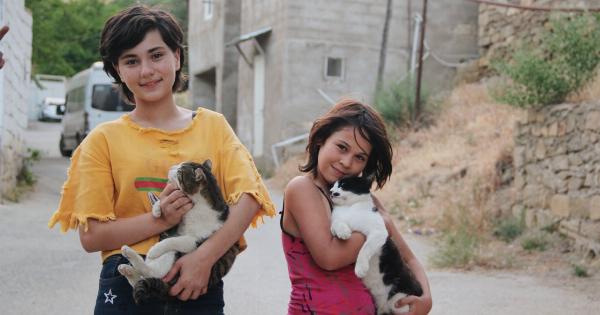Do you remember the furry little creatures that used to be a part of your childhood memories? You might be surprised to know that cats have been a part of human history for thousands of years.
While most people today consider cats as pets, they were once revered and worshipped in ancient civilizations such as Egypt. In this article, we will explore the role of cats in our childhood memories and the impact they have on our lives.
Childhood Memories with Cats
For many people, cats are an integral part of their childhood memories. Whether it was the first time they held a kitten or the sound of a cat purring as they snuggled together, the memories of cats can bring a smile to their face.
Some of us may have even grown up with cats in our homes, which made them feel like furry siblings.
One of the fondest memories of having a cat as a pet is the bond that we form with them. The comfort and affection that we receive from our furry companions can be a source of solace in difficult times.
As children, having a cat around can help us learn responsibility and empathy as we take care of them.
Cat Videos and Memes
In recent years, the internet has become overrun with cat videos and memes. From Grumpy Cat to Lil Bub, cats have become viral sensations that people love to share.
These videos and memes are not just for entertainment purposes, they also serve as a reminder of the joy and happiness that cats bring into our lives.
Some studies have suggested that watching cat videos can actually be beneficial for our mental health. It can lower stress, anxiety, and improve our mood. It’s no surprise that these videos and memes have gained such popularity in recent years.
Cats as Emotional Support Animals
Cats have been known to have a calming effect on people, which makes them ideal emotional support animals. They can provide comfort and companionship to people suffering from mental health issues such as anxiety or depression.
In recent years, more and more people have been registering their cats as emotional support animals.
This is because they offer a more practical and affordable solution for people who need emotional support but don’t have the resources to care for a larger animal like a dog.
Cats in Pop Culture
Cats have always been a part of popular culture. From the famous Garfield comic to the recent movie adaptation of Cats, cats have been portrayed in various forms of media.
The production of the musical Cats, which debuted in London’s West End in 1981, has been running for over 30 years.
Cats have also been featured in literature. T.S. Eliot’s Old Possum’s Book of Practical Cats is a collection of poems about cats that was the inspiration for the musical Cats.
Andrew Lloyd Webber turned this collection into an award-winning musical that has been performed in theaters across the globe.
Cats and Superstition
Cats have been associated with superstition for centuries. In ancient Egypt, cats were worshipped and considered sacred animals. They were even mummified and buried alongside their owners.
The belief that cats have mystical powers has persisted through the centuries, and in some cultures, black cats are considered unlucky.
This superstition might be one of the reasons why cats have a reputation for being aloof or even unfriendly. However, those who have had cats as pets know that they can be just as loving and affectionate as any other animal.
Cats in Children’s Books
Cats have been featured in many children’s books over the years. The most famous cat in children’s literature is the beloved character of Dr. Seuss’s The Cat in the Hat, who taught children to embrace their imagination and creativity.
Another popular cat character is Puss in Boots, from the French fairy tale collected by Charles Perrault. Puss’s charm and wit endeared him to generations of readers. He is also a central character in the Shrek movie franchise.
Cats and Health Benefits
Aside from the mental health benefits of owning a cat, there are also physical health benefits. Studies have shown that owning a cat can help lower blood pressure and reduce the risk of heart disease.
One study found that owning a cat can reduce the risk of heart attacks and strokes by more than one-third.
The exact reason for this is still unknown, but it is believed that the calming effect of a cat’s purring can help relieve stress and anxiety.
The Conclusion
Cats have been an essential part of human history for thousands of years. They have played significant roles in our childhood memories, pop culture, and superstition.
There are many health benefits to owning a cat, including the potential to reduce the risk of heart disease. With their adorable faces and quirky personalities, it’s no surprise that cats have such a special place in our hearts.





























